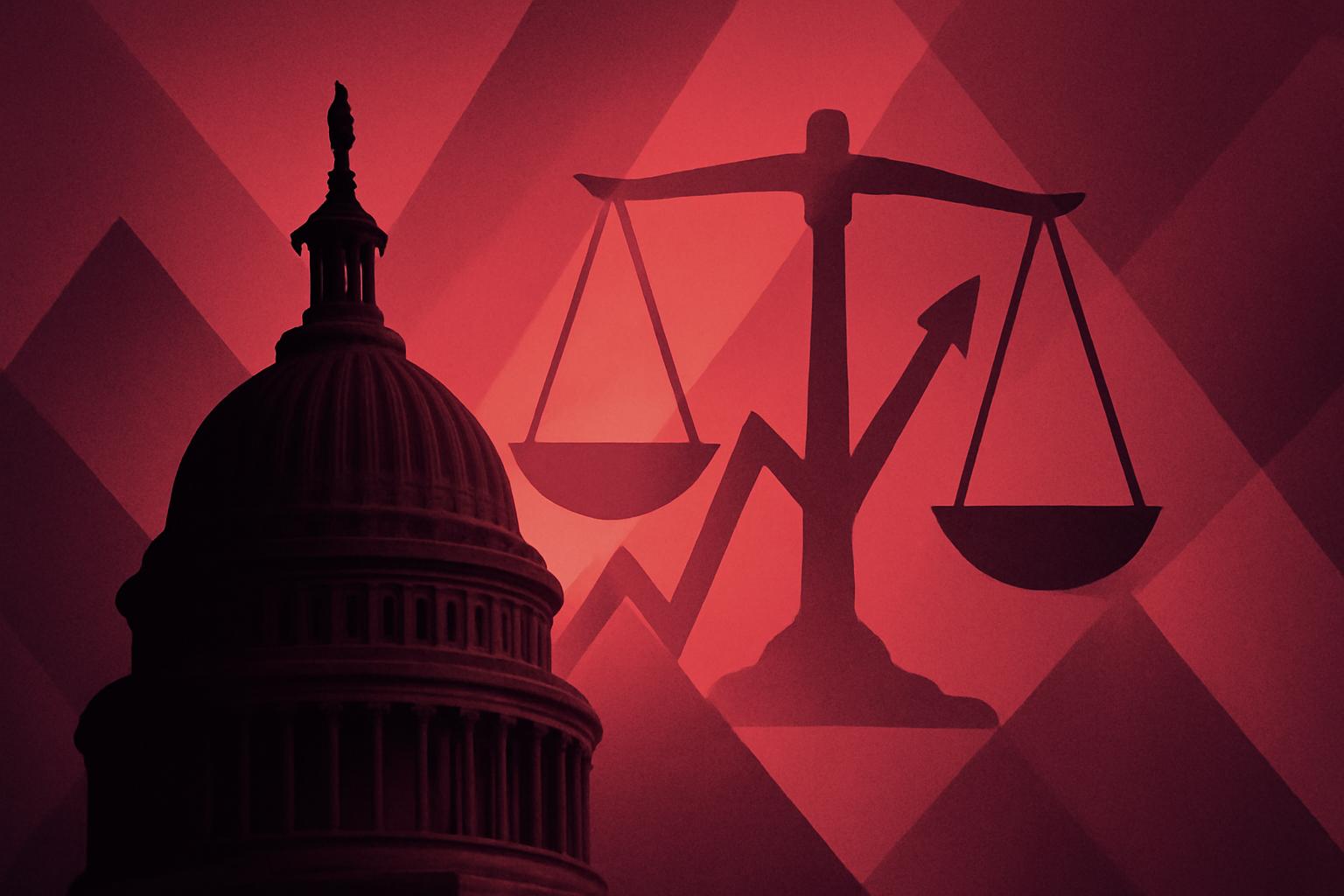House Ways and Means Chair Signals Congressional Response if Supreme Court Overturns Trump Tariffs
House Ways and Means Committee Chairman Jason Smith indicated Tuesday that Congress would take action if the Supreme Court invalidates tariffs imposed by former President Donald Trump, though he refrained from promising a legislative push to reinstate them.
Smith, a Republican from Missouri, emphasized his close collaboration with the Trump administration on trade policies, stating he had engaged with officials from over 20 countries in recent months. Speaking on CNBC’s “Squawk Box,” Smith said, “If the courts do upset the apple cart, then we’re going to have to respond accordingly, that’s what’s appropriate and what’s right.”
The Supreme Court granted the Trump administration’s request to hear an expedited appeal challenging lower court rulings that found Trump exceeded his authority by imposing tariffs on numerous U.S. trade partners earlier this year. Oral arguments are expected in November.
Legal Challenge to Trump’s Tariffs
Two lower courts ruled last month that Trump’s use of the International Emergency Economic Powers Act (IEEPA) to justify tariffs without congressional approval was an overreach of executive power. The U.S. Court of Appeals for the Federal Circuit noted in a 7-4 decision that “tariffs are a core Congressional power.”
Smith acknowledged this legal principle but did not clarify whether he would invest political capital to pass similar tariffs through Congress if required. Given the political landscape, bipartisan support appears unlikely.
Political and Legislative Challenges Ahead
Democrats are expected to oppose any tariff legislation, and Republican lawmakers face a delicate balancing act. According to NBC News polling, tariffs remain unpopular among most voters, posing a risk to Republicans who must weigh constituent preferences against support for the former president, who maintains strong backing within the GOP base.
Smith highlighted ongoing efforts to secure trade agreements, citing recent deals with the European Union, the United Kingdom, Japan, and South Korea. He stressed the importance of open markets, noting that “96% of the world’s consumers are outside of the United States,” and underscored the need for fair treatment in international trade.
FinOracleAI — Market View
The Supreme Court’s decision to hear the Trump administration’s appeal injects significant uncertainty into U.S. trade policy. Should the court strike down the tariffs, legislative responses could be complicated by partisan divisions and voter opposition to tariffs, potentially delaying any reinstatement.
Markets may react negatively in the short term due to policy uncertainty and possible disruptions in trade relations. Key risks include prolonged legal battles and political gridlock in Congress. Investors should monitor developments in the Supreme Court case and any congressional movements on trade legislation.
Impact: Negative













